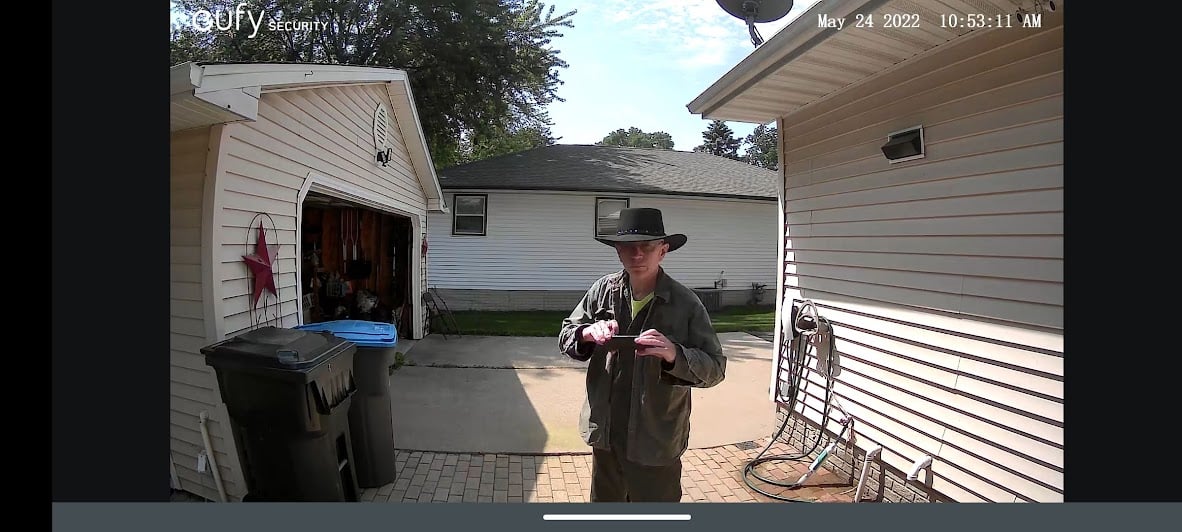Incandescent light bulbs are officially banned in the U.S.::America’s ban on incandescent light bulbs, 16 years in the making, is finally a reality. Well, mostly.
Nobody’s talking about the real casualty of this shift. What’s going to happen to all the jokes about “how many (insert category of person here) does it take to change a light bulb?” now that people don’t have to regularly change light bulbs anymore?
No single LED lightbulb I’ve ever purchased lasts as long as they claim. infact, many have been outlasted by existing incandescent bulbs in my house. your joke fodder is safe.
I don’t know what kind of shit LEDs you’ve been buying but I’ve yet to ever have to replace one. Been using them for many years already.
Same experience here. Every single LED lightbulb i’ve bought, since the time I started using them, has outlasted basically everything else I’ve purchased before. It draws less energy and doesn’t produce basically any heat too, which is excellent
You have to give the industry some time to circle the wagons and enshittify led bulbs so that they only last 10,000 hours
You’re going to want to replace them when they stop getting security updates…
I’ve had one or two LED bulbs die, which is why I switched to buying “energy star” rated bulbs. As part of the accreditation process, they need to certify the lifespan
I started switching to LEDs 8 years ago. Every single one of them is still working. It used to be that bulbs should be changed every year or two.
My mom buys these cheap LED bulbs from Amazon and about half burn out quickly (probably 10% are DOA).
We have 100% LEDs throughout our fifth wheel (about 30 of them), and they are all still going strong (all installed in 2015, and used daily since then).
I think there’s a serious difference in quality available and it certainly shows.
Honestly as somebody who’s been watching big clive’s channel I would never recommend anybody to buy those cheap LEDs from Amazon because there’s a non-insignificant risk that they may burn your house down.
That’s really dependent on local regulation, and wether or not you bought products licensed to be sold where you live or random imports from AliExpress.
My smart LED lights were bought in 2017, they are still working perfectly and have zero signs of issues - same brightness, same connection strength, same white point. The only exception was precisely the cheapo desk lamp one I bought from an online reseller, that one lasted a year and the control board fried itself.
I buy all my stuff at Target, Walmart, or Home Depot. I have to replace my LED bulbs just as much if not more than I ever had to with Incandescents. In my last house I had incandescents that lasted the entire 8 years I was there, while I replaced other leds multiple times.
deleted by creator
I can tell you from having looked into becoming an importer of those things maybe a decade ago that the very EU rules for the CE mark (a requirement for them to be allowed to be imported for sale into the EU) cover things like failure rates (max 5% in the first year), minimum hours without failure (10,000 and models must actually be tested on it in order to be certified), loss of brightness with age, minimum CRI and so on.
So yeah, buy them from chinese sellers on Amazon or Aliexpress and you’re importing them yourself for personal use in which case no such rules need apply (if doing that I recommend purchasing only from those sellers that mention their product has a CE mark).
In the US, were “consumer right” tend to be this wierd thing that only wimpy eutopean worry about, I suspect there are nowhere the same level of rules (probably the bare minimum for mains wired devices which is pretty much “won’t just randomly kill users”), which would mean the stuff carried by the local sellers is China-quality-at-American-prices, so basically the Aliexpress quality but with extra cost to pay the fat bonus of the CEO of the large retail surface.
PS: As a side note to anybody interested in using the CE mark as the minimum standard for their own LED light bulb purchases, look at the packaging: there are very specific rules for the packaging itself, so for example it has to list the brightness (in lumen) with more proeminence than the wattage and also has the energy rating (including a standard design with a graph of horizontal bars) so these things are pretty easy to spot from the packaging of the light bulb.
Just fucking yesterday out of 12 Nisko high CRI bulbs around the house one just stopped working. All of them are mere one year old.
And those high cri ones are the most expensive ones. Lets see how much time the others survive… ill keep you posted.
I have a bunch I bought in 2016 that are still going strong. Only stopped using them because we wanted cooler lighting and they’re all pretty warm. We’ve had like 4 or 5 out of the original 50 or so that stopped working though.
I don’t remember the last time I changed a light bulb at home
The only LED bulbs I’ve bought that haven’t blown within a year are my Philips hue bulbs. They are expensive but they are all I’ll buy now, and my girlfriend and I love setting them to relaxing colors in the evening while we relax together on the couch
deleted by creator
I’ve also had very different results, depending on brand. Definitely avoid the cheap stuff
Now I have the opposite problem: brands and styles change too much. What do you do when one bulb of a multi-bulb fixture burns out, but they’ve all outlasted the brand or style? I do already have a drawer full of LED bulbs that I replaced so the fixture would match, and can’t always find a fixture with fewer bulbs
Don’t worry, many have shitty drivers that will fail and poor cooling that will kill the diodes.
deleted by creator
There’s a tradeoff with CFL bulbs between longevity and instant action. The normal expectation for a light bulb is to have it at full brightness the moment you flip the switch, but the first CFL bulbs to market often took minutes to reach peak output. Longer if they were cold.
So to meet consumer expectations, manufacturers began designing bulbs that would, on ignition, damage themselves in order to reach peak output faster.
It’s no wonder the CFL bulb failed as a product, you would either get a bulb that would never be bright enough when you needed it, or you got a bulb that would burn itself out just as quickly as any incandescent for twice the price.
deleted by creator
In 2008(ish) we rewired our house (built in the '20s) and replaced every fixture. We probably had 25 CFL bulbs (most in ceiling fans), and had no losses for the several years that we owned the house after that. But I remember paying way more for bulbs in years before that and having them all fail fairly quickly.
As someone living in the EU where incandescent bulbs have been banned for over a decade, I can assure you that changing lightbulbs is still a thing. Not as frequently, but it happens, especially if you buy cheaper brands LED bulbs. They definitely does not have the longevity that they advertise.
The U.S. is pretty late with this, compared to the European Union. Only a few special bulbs are still sold here. Apart from that, the only allowed lighting technology is LED.
This applies to all the things, unfortunately. It must be nice to have a functional union. Even though I’m sure it’s not perfect, progress is made at a decent pace. Our country is hijacked by a cruel/angry/illiterate cult every 1-2 elections, it’s not ideal.
Well… only 11 yrs after EU… That’s not so bad.
https://ec.europa.eu/commission/presscorner/detail/en/IP_08_1909
for real though… as an American I would love if we were 11 years behind the EU in lots of other areas
Yep. Even Canada banned most common incandescent bulbs in 2014 and 2015.
Wondering if incandescents can still be sold as heat bulbs because that’s what they are
Yes they can. Also your fridge and oven will still have incandescent bulbs because more efficient lights aren’t great at operating in extreme temperatures.
manufacturers can still build and stores can continue selling:
Appliance lamps, including fridge and oven lights Black lights Bug lamps Colored lamps Infrared lamps Left-handed thread lamps Plant lights Floodlights Reflector lamps Showcase lamps Traffic signals Some other specialty lights, including marine lamps and some odd-sized bulbsWe have an LED light bar in our deep freezer and also our mini fridge. LEDs seem to work absolutely fine in the cold actually.
Yeah, LEDs are pretty ideal in the cold as long as they’re properly sealed from humidity. They don’t heat up your fridge extra every time you open the door. Oven lights definitely wouldn’t work unless you want a nice plastic glaze on top of the cake you’re baking.
We call them “space heaters”…
What is not banned?
Surprisingly, there is a whole slew of exempt special-purpose bulbs that will continue to be manufactured, according to the Energy Department. Here’s what manufacturers can still build and stores can continue selling:
- Appliance lamps, including fridge and oven lights
- Black lights
- Bug lamps
- Colored lamps
- Infrared lamps
- Left-handed thread lamps
- Plant lights
- Floodlights
- Reflector lamps
- Showcase lamps
- Traffic signals
- Some other specialty lights, including marine lamps and some odd-sized bulbs
I mean, good for the effort, but that’s still a lot of exceptions.
This article is dogshit, and those are not the current exemptions. DOE revised the definition of a general service lamp on 2022 to include the majority of reflectors. The rest have miniscule sales and have technical limitations that make LED replacements difficult. It’s not a lot of exemptions. When was the last time you bought a left hand thread or a colored incandescent lamp?
deleted by creator
Seems like it’s a theft deterrent since they won’t work in “normal” sockets?
You need a history expert for this one. I want to say theft deterrent, and possibly different voltages for niche applications. Also Need Flanders Leftorium.
I don’t get the exception for colored incandescent. LEDs come in whatever color you want, or get a smart bulb to change it at will
Several of these exceptions are unexpected. Oven light, sure: LEDs can’t survive the heat. That makes sense. Plant lights because you probably need full spectrum. And traffic signals because they’re odd shape and fixtures probably last decades, but the rest?
Bug lights? A regular LED attracts fewer bugs than an incandescent bug light …. Unless they mean an attractant like fora bug zapper
Flood lights? Reflector lights? Fridge lights? Colored lights? Why aren’t these all LED?
OPs list is wrong, that’s why. DOE revised the definition of a general service lamp in 2022 to include the vast majority of reflector lamps. Bug/appliance/left hand thread/etc are all sold im tiny numbers and therefore exempt.
I was just quoting the article. ¯_(ツ)_/¯ I assumed, perhaps wrongly, that the writer knew what they were talking about, which I guess was wrong of me.
That’s totally fair. I happen to know a lot about this topic and didn’t read the article at first, and I also meant OP as in whoever posted the article, not you. I could have been more helpful here, sorry.
Plants don’t need much, if any, green light (they reflect it). LEDs can be made to be full spectrum. I can think of no reason why anyone would want incandescent lights for plants. Even before cheap high power LEDs were a thing, people usually used high pressure sodium lights.
Black lights
Nice.
They’re lights that emit in the ultraviolet part of the spectrum for the purpose of making fluorescent materials light up. To the human eye they don’t look quite black, but more like a darkish purple.
But yeah, I too always found the name deliciously ironic.
Some of these bulbs might be difficult to find in LED and there might be other considerations like shape, heat, dimmer compatibility, etc… Replacing fixtures could represent a significant burden in these cases and thought there are many exceptions listed they likely represent a small percentage of overall usage.
I’ve seen dimmer compatible LEDs and, even better, LED bulbs that have built in control of light intensity and even color. I’ve even seen bulbs capable of playing music through bluetooth!
Shape I don’t really see as a concern, as any shape an incandescent bulb can be produced in, a LED bulb can also be. And then some, as the LEDs can be set up, twisted and bent into some very imaginative shapes and angles.
And heat is not ready a concern. You can touch most LED bulbs with your bare hands with no risk of severe burn. Unless very high wattage is in play, at most, a LED bulb will be warm to the touch.
Try not to dismiss everything so quickly. I came up with those in 5 minutes but a committee of experts could find many more. When the exceptions were written they had a reason. A few examples:
-
In a traffic fixture, the heat that the incandescent bulb generates often serves to melt ice, and early traffic fixtures with LEDs did have icing problems. Replacing the fixtures would represent a significant burden.
-
An LED wouldn’t survive in an oven and oven lights aren’t on for very long either so what would it matter?
-
A bulb in a refrigerator could be exposed to condensation.
-
Dimmer compatible LEDs require pulse width modulated dimmers. Incandescent dimmers are often resistance dimmers.
The exception are there to make sure that a $1 part doesn’t render a $1000 appliance inoperable. Replacing the appliance would undoubtedly generate a ton more carbon than using an incandescent and the rule doesn’t say that LED bulbs are prohibited just that incandescent bulbs for those uses are not yet banned.
I’ll also point out that LEDs are made of plastic and essentially become ewaste at the end of their life so there is a trade off to consider too.
-
deleted by creator
can we ban standard time and permanently switch to DST now too?
i thought we did?
oh fuck me we didn’t
Ha, do you live in Arizona?
how long until there’s a right wing black market for incandescent bulbs like gas stoves prob…
My right wing dad already stocked up
“F*ck efficiency!”
Actually very on brand. hmm…
Cure rage in certain circles
Can’t wait for this to be the hot button issue in certain presidential campaigns this cycle.
Wrap it up boys, we’ve solved climate change.
Is your point we should not be taking steps to decrease electricity usage because this step by itself doesn’t fix the entire problem?
It’s just a joke, we need to do much more
The EU introduced a limitation to how much power electric devices can consume in off or standby mode.
0.5 watt normally, 1 watt if they have a status display and 2-8 watts if they’re connected to a network.
On a yearly basis this saves as much electricity as one of the member states (Romania) used in a year.
My point is that small things add up to huge numbers.
Exactly. From this particular article/policy:
Similarly, it projects that the rules could cut carbon emissions by 222 million metric tons over the next 30 years.
LED bulbs aren’t really even a small thing.
going from a 100W bulb to a 15W bulb, or a 60W bulb to a 2.5W bulb (that’s the actual conversion for the bulbs i’ve actually bought on amazon and am currently using, not hypothetical guesses) across 20-30 bulbs in a single house is a real actual big difference in energy savings.
Now instead of throwing out a little glass and wire, I get to throw out entire light fixtures with non-replacable LEDs soldered onto cheap PCBs that fail in about the same time as an incandescent light bulb!
I’m all for the energy efficiency of LEDs, but the cheap light fixtures replacing bulbs are a bad trend that needs to die, but they’re easier to wire and last longer on paper, so they’re getting installed everywhere by default.
For what it’s worth I’ve had one of those integrated overhead fixtures in my kitchen for about 6 years. It hasn’t failed yet. The overall shape of the fixture which we like also wouldn’t be possible if the bulbs were replaceable.
They’re not all bad, there are many bad ones though and the light bulb form factor is better for repairability (but there are bad LED bulbs too).
Your sample size of one is useless
Well actually I’ve got one in my laundry room too and that one hasn’t failed either so it’s really a sample size of two. But either way if you don’t like it that’s why I said for what it’s worth.
Still useless
Im going to replace a two year old light because of this non replaceable light crap.
This has everything to do with implementation and complications from late-stage capitalism and not the actual technology
There are other uses of incandescent bulb beyond lighting. We use them to heat small enclosures in the winter and we have light to work in the space if that needss to happen. To use heat tape or space heaters is far more likely to catch fire.
And for those uses they aren’t getting phased out:
Surprisingly, there is a whole slew of exempt special-purpose bulbs that will continue to be manufactured, according to the Energy Department. Here’s what manufacturers can still build and stores can continue selling:
Appliance lamps, including fridge and oven lights
Black lights
Bug lamps
Colored lamps
Infrared lamps
Left-handed thread lamps
Plant lights
Floodlights
Reflector lamps
Showcase lamps
Traffic signals
Some other specialty lights, including marine lamps and some odd-sized bulbs
And my lava lamps require the heat they put off.
You can’t be groovy with LEDs
Isn’t that the worse way for your outcome? Isn’t there a more efficient method that reliably heats without light ?
Removed by mod
Isn’t that a pretty flawed design flaw then. Why not use a heater as a heater rather than a light bulb ? Or like a heat lamp ?
A waste of only 2% is still a waste.
As far as I understand, energy is conserved. Light inside a closed box will ultimately turn to heat too.
Makes sense. Nonetheless, reminds me of modern washing machines. Yeah they make sense and save water but it stinks that it’s a compromise and it takes twice as long to wash. With Led bulbs it’s always a say a prayer situation to see if a particular bulb works with a particular dimmer and isn’t a flickering mess.
electric companies started subsidizing LEDs 10 years ago at box stores. electricity use went down and the bills went up as usual. all the while still burning coal. 🤔 incentives? probably part of the same mandates taxes get spent on
Once they got the white light spectrum figured out I was fine with switching to leds. Less power, don’t get hot, last longer.
Why are Republicans mad about it?!
Because they’re driven entirely by emotion, not rationality. They were told to be angry about it, so they are. Plus, Biden or something.
When are they aren’t mad? LOL they can die mad for all I care.
Tradition
Because imagining that someone might have a legitimate reason to want a product or service that a regulator might not have thought of is currently a “Republican” trait in the US.
Does anybody use incandescent light bulbs as radiators? Because it’s the only alternative use I can think of.
In the European Union we banned them 10 years ago and people just continued their lives. I wish people were as mad when books get banned, but sadly it’s not the case
Does anybody use incandescent light bulbs as radiators?
Yes. I’ve done it personally a couple times.
Because it’s the only alternative use I can think of.
The thing about alternative uses is that they’re still real even if you can’t think of them.
Broad bans are a bad policy tool in general. Even if you believe in the progressive ideal of expert regulators making broad societal policies, a simple thought experiment shows the problem: What would it take to do the study to accurately determine all the negative effects of a ban? Not guessing, not wishful thinking, but really collecting and analyzing the information.
I wish people were as mad when books get banned, but sadly it’s not the case
When was the last time the US federal government banned a book?
Thank you. What is the usage of using them as a radiator? Am I wrong or does it seem quite inefficient?
Regarding your last question: https://en.m.wikipedia.org/wiki/2021–2023_book_banning_in_the_United_States
Once you’re doing resistive heating any resistive element is just as efficient as any other. Incandescent light bulbs have three advantages: They are cheap, easy to work with, and it’s really obvious when one is turned on.
As for your link, it’s talking about arguments about which books should be made available at school and local libraries. In no sense is that even related to the federal government banning books.
Well I’ve never said the US federal government is banning books, but I wish people were as mad when their local schools and libraries do that :-)
The link seems broken even if I copy-paste it? Wtf. It’s a Wikipedia article titled " 2021–2023 book banning in the United States"
And what is that legitimate reason here?
Because they were born.
because they think we should be burning whale oil
people started hoarding them, lol
Yeaaaaars ago there was the talk of a ban, and I think something got passed but ultimately never materialized (until now). My dad hoarded them. He also bought Gold when the thought Hillary was going to win because he thought she would crash the economy.
Right up there with the people who started buying guns like mad because they were told (gun industry?) that Obama was going to somehow take all their guns.














